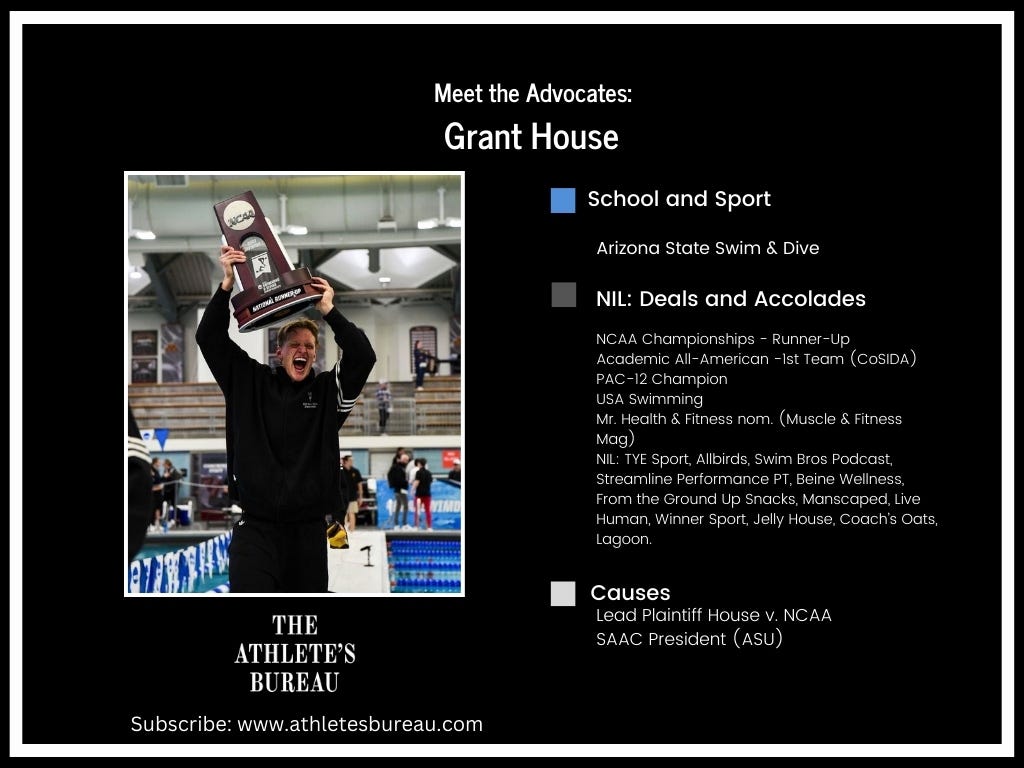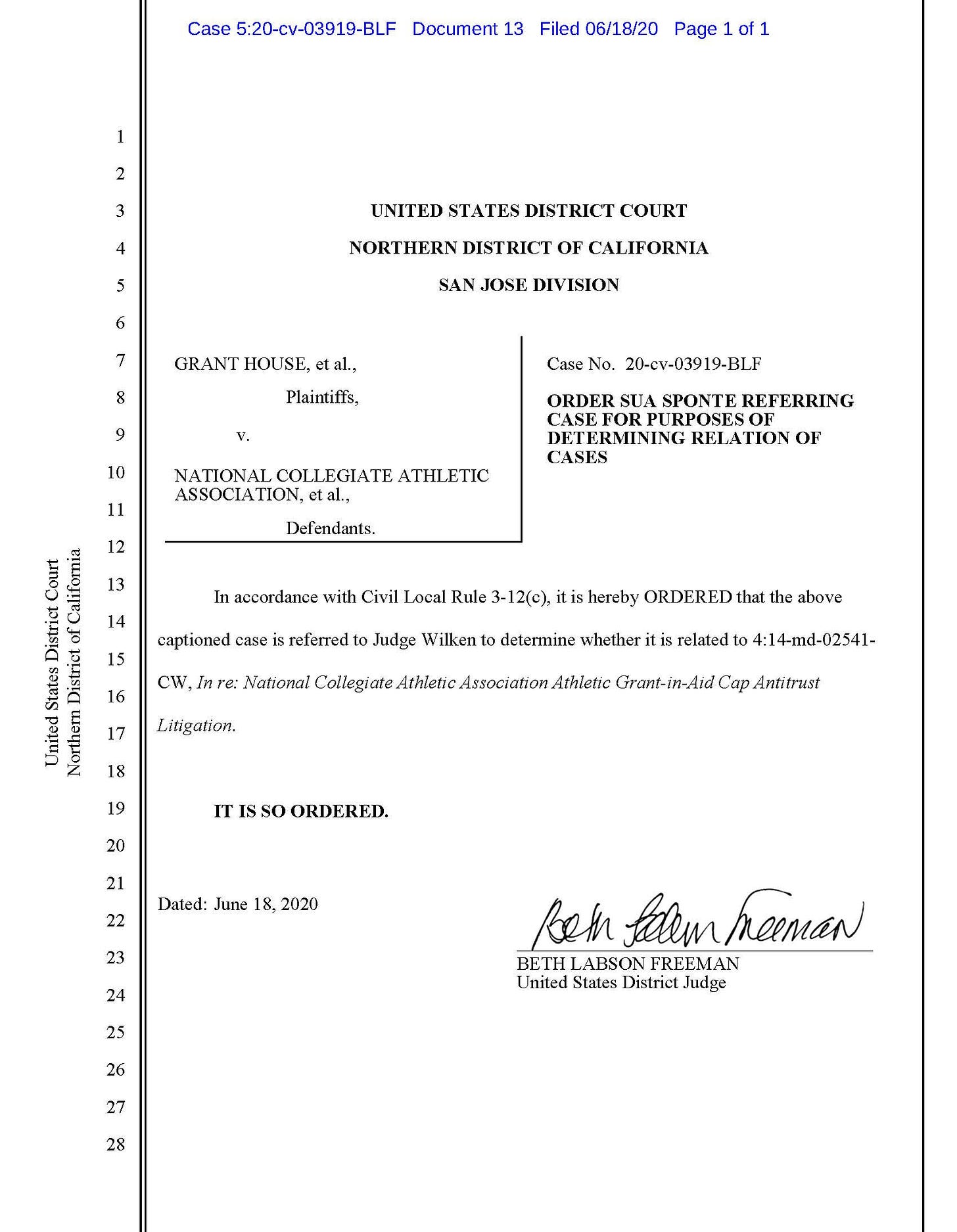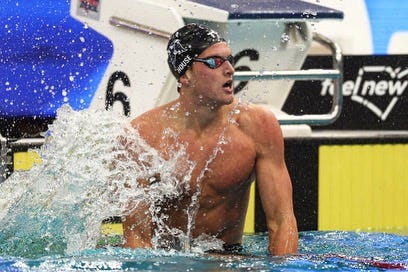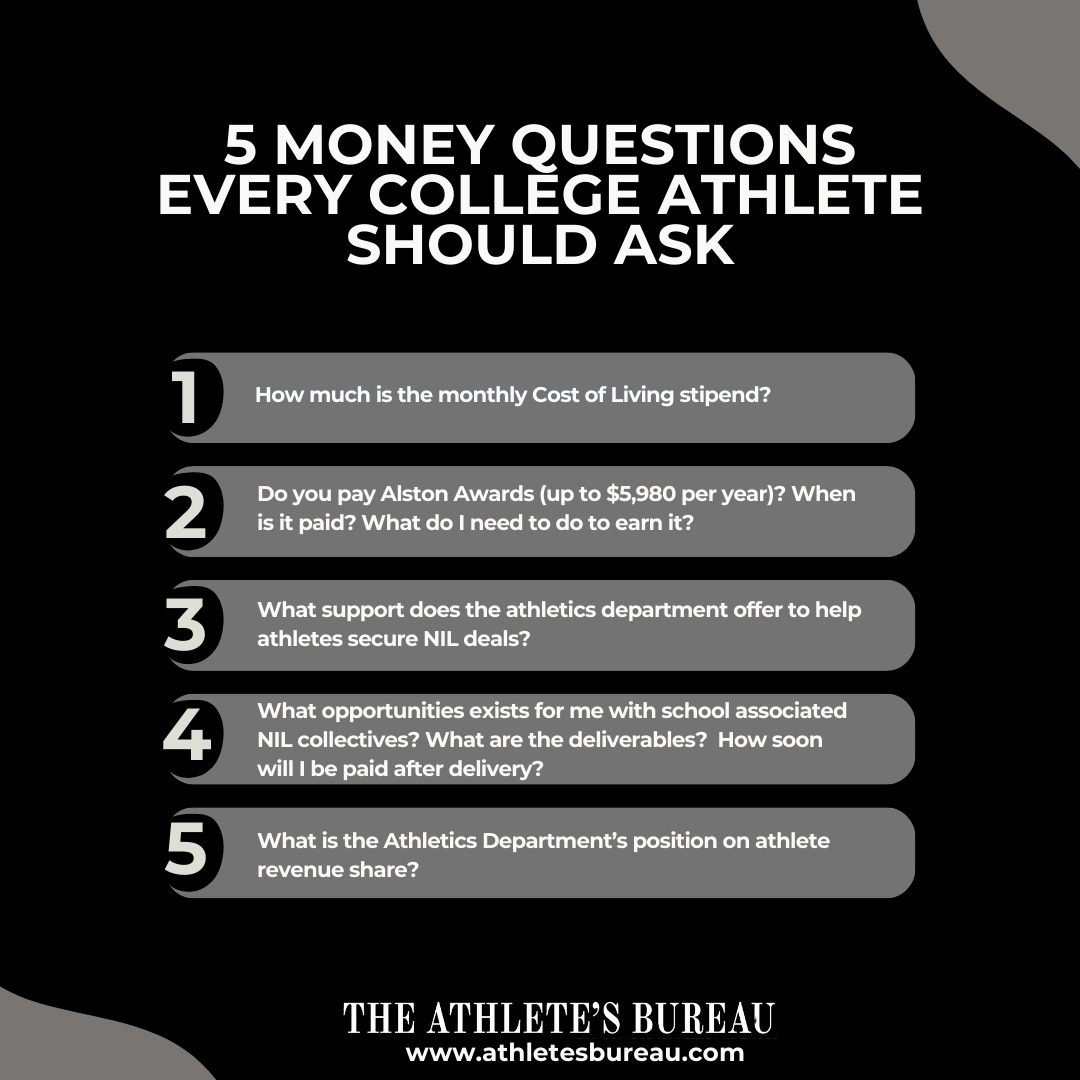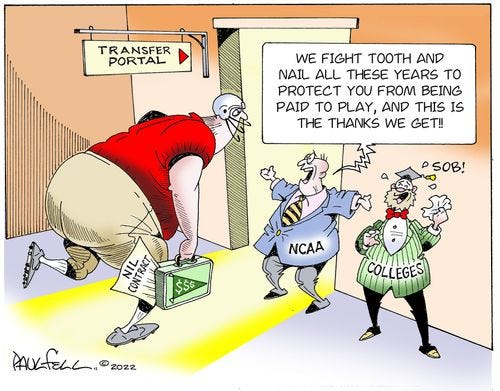Today's Agenda: House Money
The House v. NCAA and related antitrust cases are about to settle, resulting in billions of dollars going to college athletes. We are winning!
Publisher’s Note
Presented by Payment Labs
This past November, I launched this newsletter and a college athlete polling service to advocate for college athletes to be paid a fair share of the billions of dollars we generate for our schools. Soon, and very soon, the House v. NCAA and related antitrust cases will be settled and athletes will be receiving more of their fair share of revenue than ever before.
This journey led me from testifying on capitol hill to conversations with state attorney generals, state legislators, athletic directors, plaintiffs attorneys, NLRB counsels, union leaders, media interviews, and hundreds of fellow athletes.
Today, we are re-sharing our December 2023 article and interview with the college athlete lead plaintiff, Grant House. This will help you understand what the cases are all about from the athlete’s POV and why it is a huge deal.
Thank you for all of your continued support!
Best,
Chase
In a TAB Exclusive, TAB talks with Grant House (Arizona State Swim & Dive), the lead plaintiff in the House v. NCAA case. With billions of dollars and the economic freedom of hundreds of thousands of athletes at stake, no athlete is having more current and potential future impact than Grant House! You will enjoy hearing directly from Grant and reading the companion featured article on the House case and what it means for the future of college athletics.
The Transfer Portal window is open and December Signing Day approaching. In addition to being athletic and academic decisions, the choice of college is also a business decision. So, in this issue we introduce our Personal Finance series and suggest “Five Money Questions Every College Athlete Should Ask” of their respective schools. This is especially true for recruits and transfers. Athletes do not need to wait on the resolution of the House case to begin building healthy financial futures.
I hope you enjoy reading this issue as much as we enjoyed preparing it for you.
Best,
#BE11EVE #NILforGood #PayTAB
Meet the Advocates: Grant House, ASU Swim & Dive and Lead Plaintiff, House v. NCAA
By Griffin Uribe Brown, Syracuse Newhouse School1
House v. NCAA is a class-action antitrust lawsuit in the Northern District of California federal courts scheduled for trial in early 2025. The presiding judge, Claudia Wilken, whose rulings include O’Bannon v. NCAA and NCAA v. Alston, has helped pave the way for Name, Image and Likeness (NIL) rights and education-related compensation. If successful, the House case could “change the landscape of college sports,” resulting in “billions in damages” paid to college athletes from the NCAA and Power 5 Conferences and could force the permanent removal of the NCAA’s remaining limits.
The lawsuit seeks damages in the form of $1.4 billion in back pay for over 14,000 current and former college athletes who were barred from profiting from their NIL rights from a period of 2016 until the NCAA ended its prohibition, via an interim policy, on July 1, 2021. Under federal antitrust law, the plaintiffs would be entitled to over $4 billion in damages because antitrust law allows damage claims to be tripled.
The name and face of this landmark case is former Arizona State swimmer Grant House. House is one of three lead plaintiffs – alongside Sedona Prince (TCU/Oregon Women’s Basketball) and Tymir Oliver (Illinois Football). He was chosen to be a lead plaintiff in the lawsuit due to his grasp of the history of the NCAA and his commitment to represent Olympic-sport athletes, a group House says is “overlooked and marginalized by the NCAA.”
For House, this compensation is long overdue, and a chance for college athletics to move away from the NCAA business model that Justice Kavanaugh once claimed, “would be flatly illegal in any other industry in America.” (NCAA v. Alston)
“[House v. NCAA] means that we can finally get paid for our hard work and dedication and that we can have more freedom and autonomy over our own lives,” House said. “It means that we can pursue our passions and interests beyond sports and that we can use our platforms to make a positive impact on the world.”
House grew up in Indiana as a multi-sport athlete. He chose to swim at ASU to help build the program into a national powerhouse, a goal he achieved when the Arizona State Swim and Dive won its first Pac-12 Championship in 2023 and a national runner-up finish at the NCAA Championships that same year. He studied Exercise Physiology as an undergrad and then got his Master’s of Law in Sports Law and Business last spring.
House saw firsthand how some schools, including ASU, were unprepared for the integration of NIL. After representing Team USA in the pool multiple times, House realized that despite the achievement, he was unable to “capitalize” beyond that without compromising his eligibility as a college athlete – part of the reason he chose to lend his name to the lawsuit.
House notes that NIL is only allowed under an interim NCAA ruling and the college sports governing body, along with conference commissioners, have been actively lobbying Congress and elsewhere to roll back college athlete NIL and economic rights. In short, NIL rights could be taken away from athletes at any point and House maintains that athletes deserve the right to be paid for the often beyond 20-hour-a-week commitment that they make to their sports.
In sharing his story as a lead plaintiff and athlete advocate, House hopes to bring to the forefront the “sacrifices and labor” that college athletes put into athletics. For House, this lawsuit is an opportunity for conferences and colleges to be proactive about changes he describes as “inevitable.” He believes that resisting these changes only delays the creation of a fairer and sustainable system that hinges on athlete rights.
“The more we resist [NIL and athlete economic rights], the longer this journey is going to take,” House says. “And if we are more proactive now, if we are taking these steps: Step by step, we travel far. Drop by drop, the jug fills full.”
To learn more about House’s story and part in this lawsuit, follow him on Instagram, X/Twitter, TikTok or LinkedIn, and watch his interview with The Athlete’s Bureau.
Personal Finance
Powered by NOCAP Sports
Five Money Questions Every Athlete Should Ask: The focus of every college athlete is training and competing in their sport. At TAB we believe that focus on academics and earning a degree is the greatest value creation source for most college athletes. While a college scholarship is a life-changing event for college athletes, many of the existing opportunities to secure a healthy financial future are often overlooked during the recruiting and transfer process. The following money questions are presented to help college athletes maximize their financial opportunities as a college athlete.
Five Income Sources Every College Athlete Should Know About:
TAB In The News
Washington Post (Jesse Dougherty, Business and NIL Reporter) : ”This month, Griffin launched his own Substack to write about NIL and why schools should share revenue with their athletes.”
Front Office Sports Today Podcast (Owen Poindexter, Senior Writer): “TAB Publisher Chase Griffin explains the mission of The Athlete’s Bureau and how he is turning his NIL expertise into a platform to help other college athletes.”
Funny Money
Griffin Uribe Brown, TAB Contributor, is a second-year student at Syracuse University from the Chicago area. He is a journalism and policy studies dual major and has spent the last few years doing a variety of coverage at SU, including the award-winning “Infodemic”, yearlong reporting project on misinformation. Griffin loves soccer more than almost anything and can be found on Instagram or X/Twitter.




